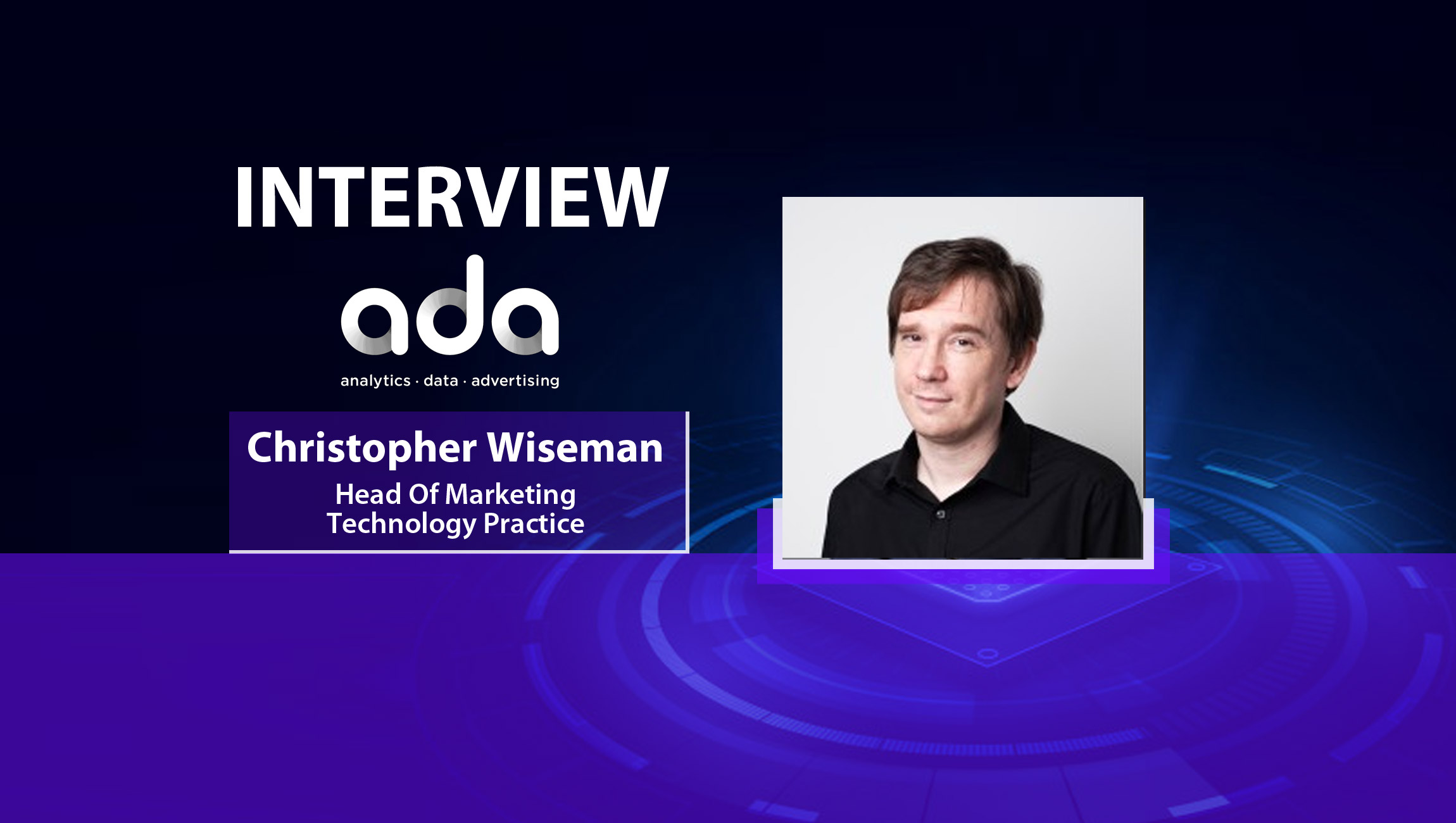Christopher Wiseman, Head of Marketing Practice at ADA shares a few key highlights on ADA’s new martech-as-a-service offering in this quick chat while taking us through his biggest marketing and martech moments through his journey: _______ It’s definitely been a unique journey for me. Before joining ADA, I worked in digital consulting, then moved on to user experience (UX) before I joined a product company. When I got into UX, I was introduced to the world of technology. Going into product, this allowed me to better understand what goes on behind the scenes. This is how I see ADA bring all of the pieces together. I truly believe what we are building is incredibly unique. We are part creative agency with out-of-the-box ideas from a business and brand perspective, we have the technology capability to build MarTech solutions, and we have consultants who specialise in not just strategy, but execution as well. I also love the fact that we are a Southeast Asian company; I think the culture here is really refreshing. Currently I’m in the midst of hiring and growing the team, all while developing proposals and keeping our existing business running. No one day is like another, as there is always something new and exciting. Marketing Technology News: MarTech Interview with Tobias Knutsson, CEO at Adverty Our newly launched MarTech-as-a-Service offering supports businesses in unlocking the full potential of their MarTech investments and driving growth across all their sales and marketing channels. Firstly, there is now a clearer link to business goals by prioritising end-to-end performance. Traditionally, MarTech comes from system integrators, which is based on the end platform, and brands I’ve observed usually don’t have the bandwidth to continue optimising their solutions and drive improvement in their end sales or marketing. Secondly, the offering ensures much faster deployment to market, so our clients can achieve greater value-add within a shorter timeline. It used to be a heavy, long process at the implementation level, which is why brands tend to get stuck at the initial strategy phase. This is how our MarTech-as-a-Service covers all stages from strategy to execution. We have a whole team of consultants to guide clients throughout the entire life span. We believe the offering can act as an extended arm of the client to enable, train, and scale in-house talent to ensure continuity. In Southeast Asia alone, we are seeing strong demand for MarTech-as-a-Service in the last four to five years. An average client has around 8-10 different systems already bought but tends to forget about them halfway. Therein lies the problem; while brands have managed to convince business leaders to invest in such technology, they do not necessarily have the time to ensure they are utilising the solutions they have bought to the fullest extent and to place it as a priority. These brands are sitting on a lot of value, and I think the global pandemic has definitely been a driver for brands to work out how to utilize these solutions to their full potential. MarTech-as-a-Service has now shifted from an obvious area to explore, to a lot of brands coming to us to see if we can help them use the tech to get more delivery orders or reduce the number of calls to their call centres – depending on the industry or vertical. Marketing Technology News: MarTech Interview with Steven Kellam, SVP Marketing and Alliances at 360insights One of the main challenges is the inability to link the MarTech stack back to the business needs and plans. After all, a solution is only useful if it can be integrated with existing infrastructure and translated to business outcomes. If brands want to build their own MarTech stack, they have to first ensure it connects all the data flows correctly to get value out of it. It may hold together in theory, but not in reality, which is what most brands struggle with today. There is a natural instinct for all of us to get caught up on the next big thing. Businesses tend to focus more on getting the tech up and running but lose focus on the entire lifecycle after the initial launch. They also have very lean teams; more often than not there is only one person responsible for running the entire MarTech stack. Thus, there is an issue of actually understanding that it’s not just about buying the tech, it is about investing in and building a team around it to ensure continuity. There will always be changes, and it is just going to make a lot of things harder to do in the future if we do not adapt. Brands and people, especially advertisers and marketers, are going to have to think much more out of the box. We are going to have to change our collective mindset. It’s going to come back to how we build the tech and identify what new strategies to support brands during these changes. Certainly, we will see the use of CDP’s increase as a result. Marketing Technology News: Looking for a MarTech or Tech Job in Another Country? ADA is a data and artificial intelligence company that designs and executes integrated digital, analytics, and marketing solutions.
Christopher leads the Marketing Technology Practice at ADA, a team dedicated to helping businesses understand growth opportunities. He has over 15 years of experience in digital marketing technology. He previously worked in Sitecore as Head of Alliances, helping over 200 partners in APAC deliver marketing technology solutions to customers. Before that he worked at Ogilvy where he built a CX/UX division from the ground up working across 12 countries and as a digital consultant to help businesses drive growth covering digital channels, CRM, data, mobile and ecommerce.
Tell us a little about yourself Chris, we’d love to hear about your (new!) marketing technology role at ADA. What’s a typical day at work? Also, take us through your biggest MarTech and marketing moments through the years?
Also, how do you see the demand for MarTech-as-a-Service globally? What do you feel will drive this need in future?
When it comes to creating a balanced connection between marketing plans and a marketing technology stack, what are some of the biggest challenges you are still seeing brands around the world struggle with?
As consumer privacy policies undergo change; impacting the way advertisers and marketers drive their strategies and outreach: what are some trends you feel will impact the future of MarTech or similar solutions (AdTech, etc)?
Take us through some of your most successful marketing or targeting campaigns and learnings that came from it?

The best way to drive effective lead generation tactics lies in teaming proven practices with the best lead generation and sales prospecting technologies.
How Should B2B Tech Marketing and Sales Leaders Plan Improved Processes through 2021? Catch More:



